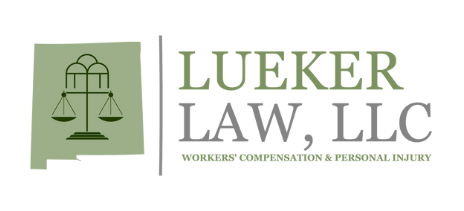Do you have a Workers’ Compensation or a Personal Injury claim?

Workers’ Compensation
Workers’ Compensation is a no-fault system that is intended to provide medical and indemnity (monetary) benefits to people injured at work in a fast and efficient manner. In New Mexico, if your employer has three or more workers, they are legally required to carry Workers’ Compensation insurance. You don’t need to prove liability or negligence to bring a claim for Workers’ Compensation benefits. The state of New Mexico’s Workers’ Compensation Act provides that the Employer “shall” provide an injured worker with reasonable, necessary, and causally related medical care in a timely manner from an authorized Health Care Provider. The Employer’s Workers’ Compensation insurance adjuster approves medical treatment prescribed by the authorized Health Care Provider. Similarly, if an authorized Health Care Provider finds that an injured Worker cannot return to work as a result of a workplace accident, the Adjuster issues checks for weekly indemnity benefits, equal to two-thirds of the Worker’s pre-injury average weekly wage. When disputes between the injured Worker and the WC insurance adjuster arise, the Worker can file a Complaint with the Workers’ Compensation Administration. The State of New Mexico Workers’ Compensation Administration is an administrative court system that provides alternative dispute resolution services, such as Mediation or Settlement Conferences, to assist in resolving disputed Workers’ Compensation cases. Click here to go to their website. Workers’ Compensation benefits are set out in the Workers’ Compensation Act, which is the exclusive remedy for people who bring a claim against their employer and their Workers’ Compensation insurer for injuries that occur at work.
Personal Injury
However, the Workers’ Compensation Act does not provide the same remedies as a Personal Injury claim, just as a Personal Injury claim does not provide for weekly indemnity benefits or medical benefits subject to approval by a WC insurance adjuster. Personal Injury cases are filed in state district or federal district courts. Personal Injury remedies are broader in scope than the benefits available in a Workers’ Compensation claim. In a Personal Injury lawsuit, a Plaintiff may be able to recover compensatory damages, including economic as well as non-economic damages. Punitive damages may be awarded in certain cases to reprimand or punish the Defendant for their extreme recklessness. Personal Injury and non-economic damages include pain and suffering, mental anguish, loss of enjoyment of life, and loss of consortium. Personal Injury economic damages are meant to reimburse past medical expenses and lost earnings, as well as the projected cost of future medical treatment and care, and loss of future earnings through employment.
Both Workers’ Compensation and Personal Injury
If you're injured at work, then chances are you've got a claim for Workers’ Compensation benefits, which includes both medical and indemnity (money) benefits. But if you were injured because of the actions or inactions of someone other than your employer, such as a third party, then you may have both a Workers’ Compensation and a Personal Injury claim. For example, if you are a driver for UPS and are injured in a motor vehicle accident through no fault of your own, you can bring a Workers’ Compensation claim against your employer as well as a Personal Injury claim against the negligent driver. If you’re injured in an on the job motor vehicle accident, then you may be able to recover Un-Insured/Underinsured Motorists (UM/UIM) benefits from both your Employer’s auto insurance policy as well as your own insurance policy.
However, if you have both a Workers’ Compensation and a Personal Injury claim, there are serious consequences involved in settling one claim before the other. Additionally, there are issues in resolving any subrogation, or reimbursement, claim brought by your employer and workers’ compensation insurer. If you settle a Personal Injury claim arising out of an on-the-job injury, your Employer and its Workers’ Compensation insurer will want to be reimbursed for indemnity and medical benefits paid out in your Workers’ Compensation case. There is a complex formula for calculating how much you may have to pay back to your Employer and its Workers’ Compensation insurer which is explained in the case of Gutierrez v. City of Albuquerque, 1998-NMSC-027, 125 N.M. 643, 964 P.2d 807 (1998). Your Employer should never be fully reimbursed for benefits to which you were entitled. The Employer and its Workers’ Compensation insurer is only entitled to the amount of the Worker’s recovery that is duplicative.
Don’t go it alone. Call Lueker Law, LLC, today for your free 30-minute consultation.
YOUR ADVOCATE AND ALLY IN OBTANING THE WORKERS' COMPENSATION BENEFITS YOU DESERVE.
Contact Lueker Law, LLC Today
Knowledgeable and Competent Legal Representation
QUICK LINKS
PRACTICE AREAS
This website has been built to be accessible for all users. If you experience any difficulty in accessing this website, please contact us for assistance.




